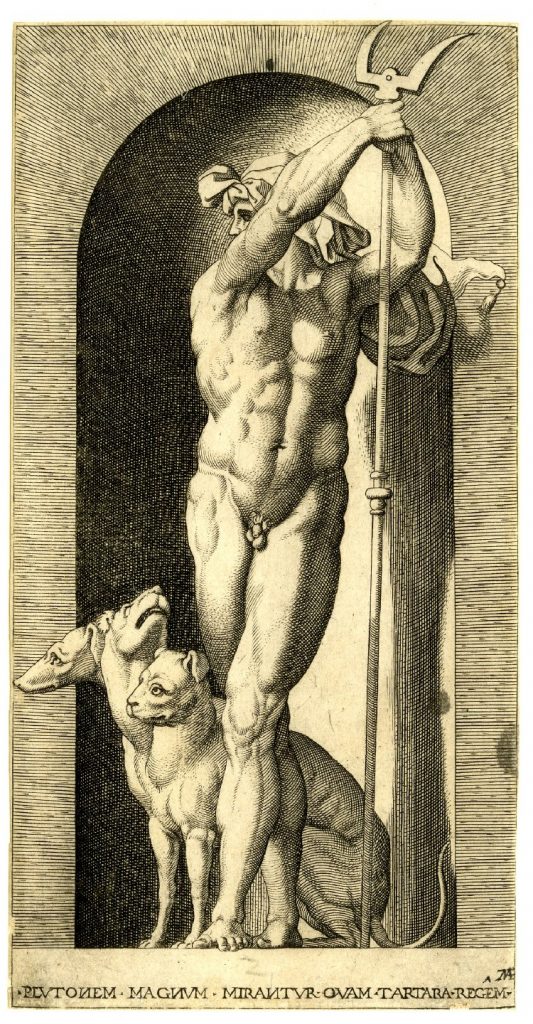More often than not, ancient Greek mythology (religion) served to explain a series of legends. Different from modern religions such as Christianity, Judaism, or Islam, ancient Greek religion was an anthropomorphic polytheism, meaning that ancient Greeks believed in a multitude of individual divine figures that took on human forms and emotions.1 Furthermore, ancient Greek mythology lacked much of the asceticism and mystical enthusiasm that is more commonly seen in modern religions. Most of the highly developed anthropomorphic and comparative rationalism of the ancient Greek religious thought can be accredited to Homer with the aid of his Iliad and Odyssey.2
The people of the ancient Greek civilization were often in a state of weakness under the power of nature; therefore, they relied heavily on the divine individuals of Olympus. Why? They believed that the forces of nature were under the control of their gods. In short, the relationship between humans and divine beings was that of a retribution justice.3 If humans did anything to offend the gods, then those gods would strike back in some sort of fashion to restore justice.4 Therefore, humans were constantly looking to please the gods in fear of their wrath.
Out of the ancient Greek mythology came the god of the dead and the underworld, Hades. Hades had five other siblings: Zeus, Poseidon, Demeter, Hera, and Hestia, and they were all children of Cronus and Rhea.5 After defeating their parents (the Titans), Hades drew lots with Zeus and Poseidon to gain their respective domains. Hades was commonly thought to be a cold god, but he was never considered to be an evil divine figure. Furthermore, it is important to note that his realm, the underworld, should not be associated with the hell of Christianity.6 However, Hades was for the most part feared by all. Another name for the ancient Greek god was Ploutos and later adopted by the Romans as Pluto.7

The god of the underworld was the husband of Persephone (Zeus’s and Demeter’s daughter). Although she was Hades’ wife, she only lived with him during the winter time.8 Persephone was the divine goddess of agriculture and fertility. Therefore, the ancient Greeks accredited the change in nature (winter) to Persephone moving to the underworld. Persephone was unable to stay with Hades at all times due to interference from her mother Demeter. Zeus, however, was okay with the marriage of Hades and Persephone. Therefore, in order to set up the marriage, Zeus had to trick Persephone, so she could be abducted by Hades.9 However, Demeter interfered, and that is why Persephone spends half of the year with Demeter and the other half with Hades.
Furthermore, it is important to note the Greek perspective of the afterlife. Perspectives about the afterlife varied from each other based on their region in Greece as well as their time period in Greek history. The consensus was that the underworld was neither heaven nor hell.10 The sense that exists within Christianity, for example, was not present during the time of the ancient Greeks. Although Tartarus was present as a location within the underworld, the Greeks would not compare it to the equivalent of Christian hell. The way the Greeks saw it, the underworld was a place that everyone ended up after death.11 However, there were a few, including the philosopher Epicurus, that believed that the underworld did not exist at all. He believed that when the body died, the soul died with the body as well.12 A good portion of Greeks refused to believe such a pessimistic perspective of the afterlife. However, even the Greek traditional perspective of the underworld was not as popular despite many Greeks believing in it.
- Funk & Wagnalls New World Encyclopedia, 2016 s.v., “Greek Religion and Mythology.” ↵
- Funk & Wagnalls New World Encyclopedia, 2016 s.v., “Greek Religion and Mythology.” ↵
- Funk & Wagnalls New World Encyclopedia, 2016 s.v., “Greek Religion and Mythology.” ↵
- Funk & Wagnalls New World Encyclopedia, 2016 s.v., “Greek Religion and Mythology.” ↵
- Salem Press Encyclopedia, January, 2015, “Hades (deity),” by Joseph, Michael, DMin. ↵
- Salem Press Encyclopedia, January, 2015, “Hades (deity),” by Joseph, Michael, DMin. ↵
- Salem Press Encyclopedia, January, 2015, “Hades (deity),” by Joseph, Michael, DMin. ↵
- Salem Press Encyclopedia, January, 2015, “Hades (deity),” by Joseph, Michael, DMin. ↵
- Salem Press Encyclopedia, January, 2015, “Hades (deity),” by Joseph, Michael, DMin. ↵
- The Greenhaven Encyclopedia of Ancient Greece, 2007, s.v. “Underworld,” by Robert B. Kebric. ↵
- The Greenhaven Encyclopedia of Ancient Greece, 2007, s.v. “Underworld,” by Robert B. Kebric. ↵
- The Greenhaven Encyclopedia of Ancient Greece, 2007, s.v. “Underworld,” by Robert B. Kebric. ↵



186 comments
Jenny Cherilla
Great Article. The Greek Gods have always been fascinating to me and I learned a few new things from your article. Thanks!
Karissa Aguilar
I actually did not know that Hades was not actually an antagonist, so this article was very informative to me. I also always had the impression that he was the ruler of Hell in Greek mythology, and to read that this wasn’t the case puts everything into a different perspective. Very good article.
Kassandra Guillen
What an awesome and well written article this is! It is interesting to learn that Hades should not be associated with the idea of hell that stems form Christianity. You have done a very good job of giving interesting facts and details!
Andrew
Fantastic! Truly loved how you explained the Ancient Greek Perspective on the afterlife. I never would have guessed that the Greeks saw the underworld as everyone’s final destination, good or bad. Well done!
Gabrien Gregory
The Greeks had quite a different view of the underworld. I had no idea!
Parisa Noghrehchi
Zeus really did agreed to his daughter’s kidnap? Wow! Amazing article!
Fatima
That is really cool! I always thought Hades was an evil person!
Mary
Great job! I did not know Zeus agreed to such a deed!
Deanna Lummus
Good read!
Andre Grajeda
Cool! I never knew that about Hades! Awesome job!